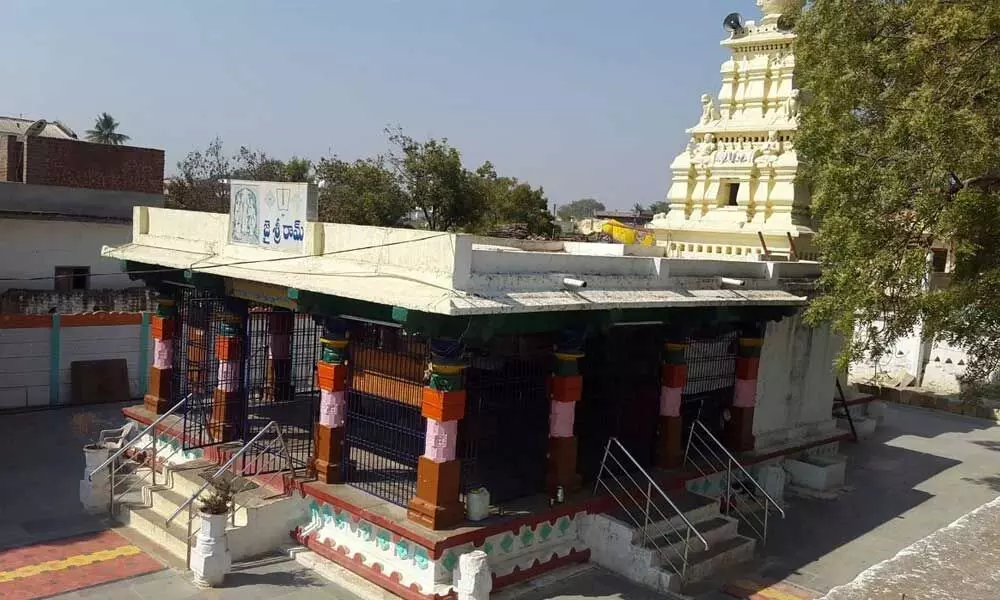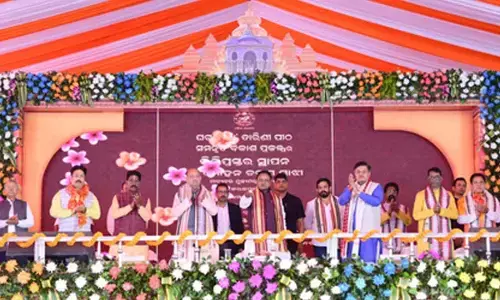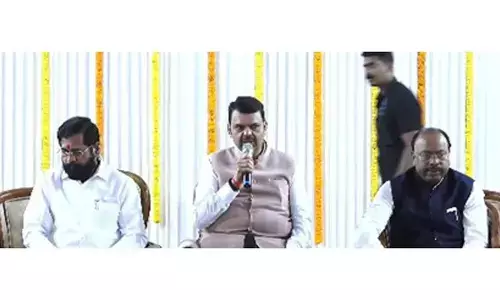Telangana: Tough task ahead for probe team of Devaryamjal temple lands

Tough task ahead for probe team of Devaryamjal temple lands
The four-member committee of All India Service (AIS) officers headed by Commissioner of Panchayat Raj and Rural Development, M Raghunandan Rao, on the alleged encroachment of about 1,521 acres of Sri Sita Rama Swamy temple in Devarayamjal, has an onerous task ahead
Hyderabad: The four-member committee of All India Service (AIS) officers headed by Commissioner of Panchayat Raj and Rural Development, M Raghunandan Rao, on the alleged encroachment of about 1,521 acres of Sri Sita Rama Swamy temple in Devarayamjal, has an onerous task ahead.
The reason, according to the insiders who worked in the State Endowment Department (SED) in united Andhra Pradesh is: "There were too many Colonel Macualays and Diwan John Munro's. The first, a political official of the East India Company. The second, a civil servant, and both worked in the erstwhile Travancore princely state. They were known for playing a historical role of being torchbearers in initiating the State siphoning off temple wealth in South India. The modus operandi continuing since then is that the civil servants acting hand-in-glove with the politicians, benamis and land grabbers in all sizes and colours."
For example, the temple lands of the Sri Sita Rama Swamy at the Devaryamjal had been in the name of the deity till the 1920s in the land records. Later, the nexus between the politicians and civil servants, particularly, those in the Revenue and Endowment department allowed to change the names of the property owners in theland records.
The names like prefix "Sri" and suffixes "Swamy" are dropped initially. To make it non-recognisable as a temple land. Later, any other component in the name in the land record that even remotely indicates that it belongs to the deity of the temple had been changed. Then, the property has been changed by sale from person to person over the years. Thus, to complete the process to turn the Gods' property to fall into the hands of the grabbers. This has been the typical modus operandi being followed all over in the united Andhra Pradesh.
Another victim for such modus operandi in which temple lands were siphoned off was the world-famous Lepakshi temple in Anantapur district and other places manipulating the land records.
Sources in the Endowment department said that another method adopted was to ask the revenue and endowment officer to look the other way and encourage large scale encroachments of temple lands. "At the most, the endowment officials can just lodge a complaint or file a case that runs for decades in litigation," they added.
Once large scale encroachments take place the politicians appear on the scene representing the government to regularise them. Citing, victimising the squatter would snowball into a social, law and order issue or even politically detrimental to get their vote-bank.
An example for the second kind of modus operandi was the encroachment of Simhachalam temple lands in the Visakhapatnam district, the official pointed out.
A former joint commissioner of the Endowment department who worked in the United AP said, there were four issues involved in the encroachment of temple lands of Devaryamjal.
First, whether the committee takes the land ownership records of the 1920s as the basis. Second, will it take cognizance of the earlier reports of the Anti-Corruption wing and the Vigilance departments? Third, how is the new 4-member committee going to draw its conclusions on terms of reference given to it? If it takes the Diwan's Committee report, then, it might end up giving clean chit for the second time.
If the Justice Venkatarami Reddy Commission view reportedly submitted a report to the State government then, it will have to nail several former revenue, endowment officials, including some AIS officers. For alleged abetment of the encroachments, the temple lands over decades to please their political bosses, and their benamis in the ruling dispensations of the day.

















